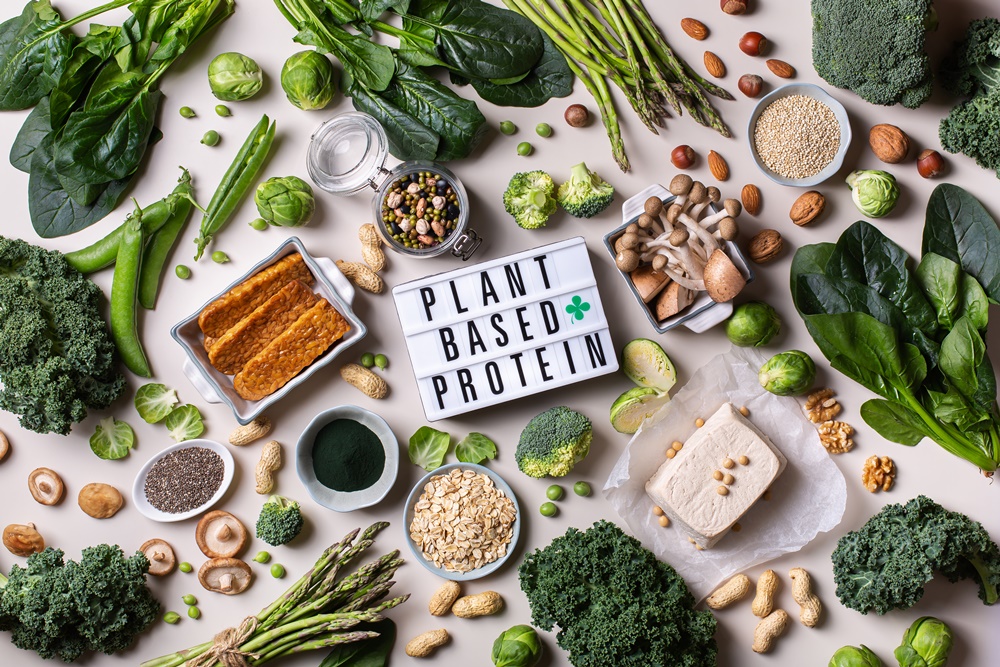The term plant-based is increasingly popular and, since 2020, there has been an increase in market share worldwide, including in Brazil. Here, we also highlight the adherence of consumers equally engaged in environmental causes.
That is, as themes involving the defense of the Amazon forest, sustainable consumption, and the over-processed industry grow, this new concept gains more followers. From a commercial point of view, this can be a good business opportunity.
However, there are certain precautions before attempting to exploit this new market trend. Fortunately, few changes are needed before making your product more acceptable.
What Is Plant-Based?
The plant-based concept means “only plants” and functions as a diet in which food and products are produced with vegetable raw materials. This food is processed in a way that tastes like animal products.
Today, this diet has been an alternative for vegetarians, vegans, and people who follow a flexitarian diet, who sometimes give preferences for meats and other times for vegetables according to the diet in question.
For now, there is no type of regulation or widely publicized market. Nevertheless, it is worth mentioning that there is an effort by some companies, which seek more natural products without the use of animal or chemical derivatives.
Today, it is also possible to find types of plant-based meats, which are indicated as “meat made from plants” or “vegetable meat”, the latter being the most popular.
Finally, it is worth noting that food based on plant origins is not something new in the Brazilian market. For example, we can mention vegetable milk and chickpeas, both quite popular on the shelves of markets.
However, today they gain more prominence due to the new diets and needs of the public.
Plant-Based Market in Brazil
With data from the Euromonitor agency, the plant-based market in Brazil has accumulated 11.1% growth in recent years. In numbers, the plant-based product industry revenue jumped from $48.8 million in 2015 to $82.8 million in 2020, which accounts for a rounded 70% increase in five years.
The next survey is scheduled for 2025. According to the average results, the revenue for this industry can reach $131.8 million in Brazil alone.
Apart from the Euromonitor agency’s data, it is also worth mentioning the study “The Brazilian Consumer and the Plant-Based Market”, carried out by Ibope with the coordination of The Good Food Institute (GFI). In it, companies find market trends, such as:
- Half of Brazilians reduced meat consumption in 2020;
- Almost half of the replacements (47%) are still made exclusively with vegetables and grains;
- 39% of respondents already consume plant alternatives to animals at least three times a week.
Currently, large multinationals, such as the Nestlé Group and Unilever, have already adopted changes in the launch of products and their respective productions. All this to be suitable for the plant-based market.
How Does Frootiva® Co Make Companies More Competitive in the Plant-Based Market?
Thanks to Frootiva® Co’s 100% natural product lines, it is possible to make food even more natural by using extracts that preserve the original components of the fruit and at the same time do not use flavorings and preservatives. This results in a more competitive positioning in relation to the supporters of the plant-based concept.
With this, every company interested in producing healthier food and beverages can opt for dry extracts or fruit powder and dehydrated vegetable powders and reduce the presence of preservatives and other additives to zero.
Where to Buy Dry Extracts for Products?
Frootiva® Co produces dry extracts of different flavors and dehydrated fruit and vegetable powders, all of which can be applied in juices, cereal bars, smoothies, yogurts, and other beverages.
To learn more about the products and work done by the company, contact us by phone at 55 11 4765-0732 or fill out the contact form.


0 Comments